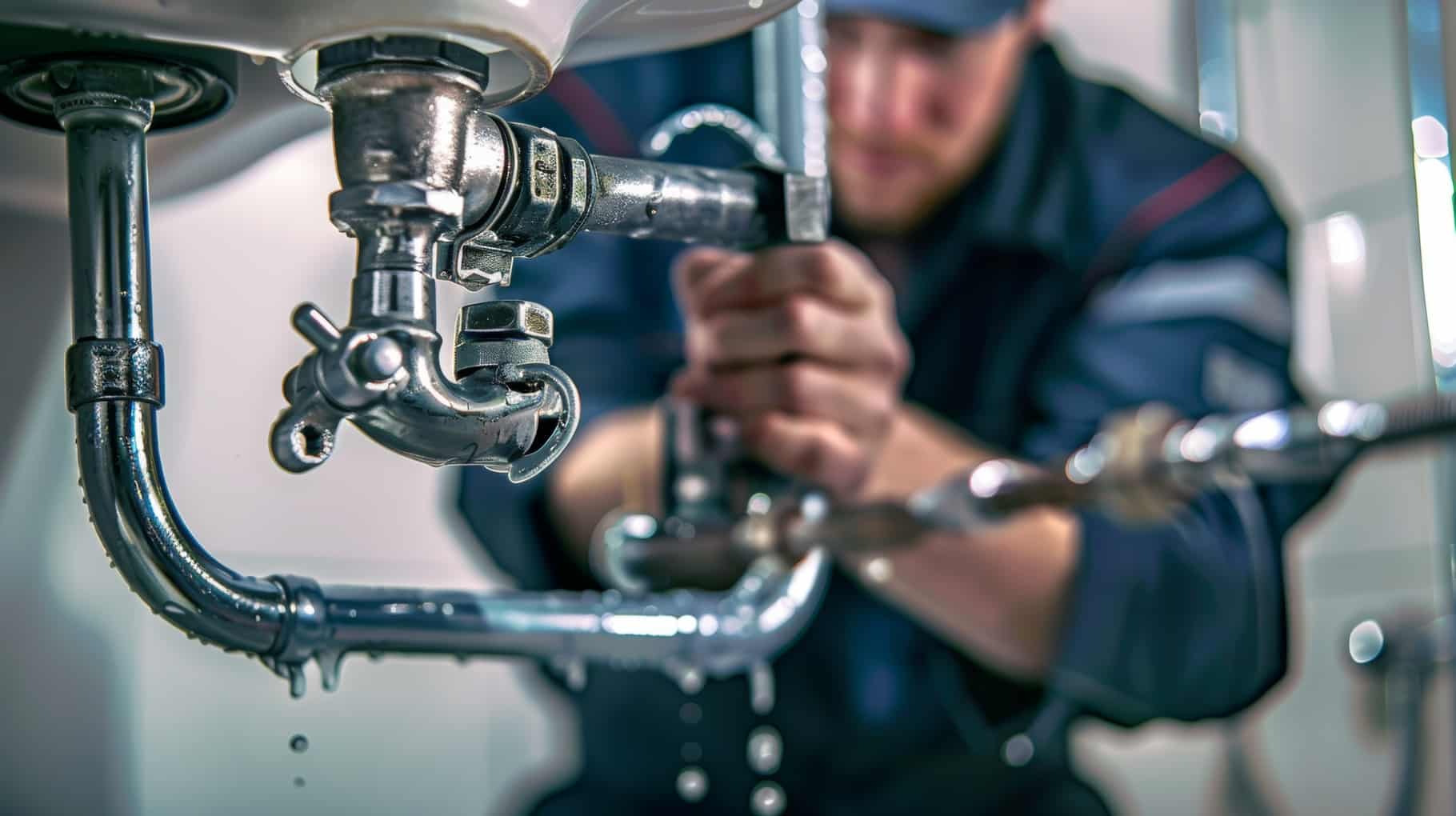Table of Contents
A well-functioning plumbing system is essential for every home. It ensures a steady water supply, efficient drainage, and protects your property from water damage.
However, even minor issues can disrupt its functionality and lead to costly problems. Recognizing the early signs of trouble and enlisting the help of a plumber Bradenton FL can save you from costly repairs and unnecessary headaches.
Keep reading to discover key signs that your plumbing system may need attention and how to address them effectively.
Slow or Clogged Drains
A slow or clogged drain can disrupt your daily routine and signal deeper issues in your plumbing system. Neglecting this issue can lead to more severe problems, including foul odors and potential backups.
Below are steps you can take to address slow or clogged drains effectively:
- Inspect your drains for buildup: Food particles, grease, soap scum, or hair often accumulate in pipes over time, causing blockages. Regular inspections can help identify buildup early and prevent full clogs.
- Use drain cleaning services for stubborn clogs: If traditional methods like plungers or chemical cleaners don’t work, professional drain cleaning can clear the blockage entirely. These services use specialized equipment to target even the toughest obstructions without damaging your pipes.
- Practice good drain habits: Avoid flushing inappropriate items such as feminine hygiene products and food waste down your drains or toilets. These items can quickly cause blockages, leading to recurring plumbing problems.
- Schedule preventive maintenance regularly: Routine plumbing maintenance helps detect early signs of clogging and keeps your drains clear and functioning properly. Maintenance services can also identify issues you might miss during your inspections.
When dealing with clogged drains, quick and efficient service is one of the most important things you want from a plumber. Prompt attention ensures your home runs smoothly again without unnecessary delays.
Persistent Low Water Pressure
Weak water pressure can turn everyday activities, such as washing dishes or taking a shower, into a hassle and take more time than usual. It’s often a sign of deeper plumbing issues that require attention to avoid more extensive damage.
The following are effective solutions to address persistent low water pressure:
- Check for hidden leaks: Undetected leaks can waste water and reduce pressure significantly. Professional leak detection services use advanced tools to identify and repair these leaks before they lead to water damage or mold growth.
- Clear mineral buildup in fixtures: Over time, minerals from hard water can accumulate inside faucets and showerheads, restricting water flow. Cleaning or replacing these fixtures restores normal pressure and ensures efficient water usage.
- Inspect and repair pipes: Corroded, damaged, or improperly sized pipes can obstruct water flow. A plumbing expert can diagnose and repair pipe issues, improving pressure and preventing future problems.
Timely action is essential when addressing low water pressure to prevent inconvenience and costly repairs. Hiring a plumber who provides efficient and reliable service ensures the problem is resolved quickly and effectively.

Frequent Leaks or Dripping Faucets
Even small plumbing leaks can waste water, increase your utility bills, and lead to property damage if left unattended. Addressing leaks promptly is essential to protect your home and conserve water.
Below are the most effective ways to deal with frequent leaks or dripping faucets:
- Repair worn pipes: Over time, pipes may corrode, crack, or wear out, causing leaks. A professional plumber can assess the condition of your pipes and replace damaged sections to restore proper water flow.
- Fix leaky valves and connections: Loose or faulty valve seals and pipe connections are common sources of leaks. Tightening or replacing these components ensures water stays where it belongs and prevents waste.
- Service your water heater: If leaks are originating from your water heater, it may be due to internal damage or pressure issues. Flushing the tank or repairing components can stop leaks and improve efficiency.
Acting quickly on leaks saves water, prevents further damage, and keeps your plumbing system running efficiently.
Strange Noises in Pipes or Fixtures
Hearing unusual sounds from your pipes or fixtures is often a sign of underlying plumbing issues. Ignoring these noises can lead to more severe damage over time.
To address this effectively, here are the potential causes and solutions for strange plumbing noises:
- Water hammer and burst risks: Loud banging noises, commonly referred to as water hammer, occur when water flow is abruptly halted. This pressure shock can weaken pipes and fittings, potentially causing bursts. Installing water hammer arrestors or adjusting water pressure can resolve this issue.
- Trapped air in pipes: Whistling or hissing sounds are often caused by air pockets trapped within the plumbing system. A plumber can flush the system to remove air and restore smooth water flow.
- Loose pipe fittings: Rattling or vibrating noises may result from unsecured pipes moving against surfaces. Brackets or straps can be added to stabilize the pipes and eliminate movement.
- Mineral deposits in valves: A high-pitched screeching noise often indicates mineral buildup in valves or faucets. Cleaning or replacing these components ensures quieter operation.
Strange sounds in your plumbing should not be dismissed. Prompt action ensures your system functions smoothly and avoids costly repairs later.
Final Thoughts
A well-maintained plumbing system keeps your home running smoothly. Taking quick action on issues prevents unnecessary stress and expenses. Regular care ensures efficiency, saves water, and protects your property. Small efforts today can prevent big problems tomorrow.


